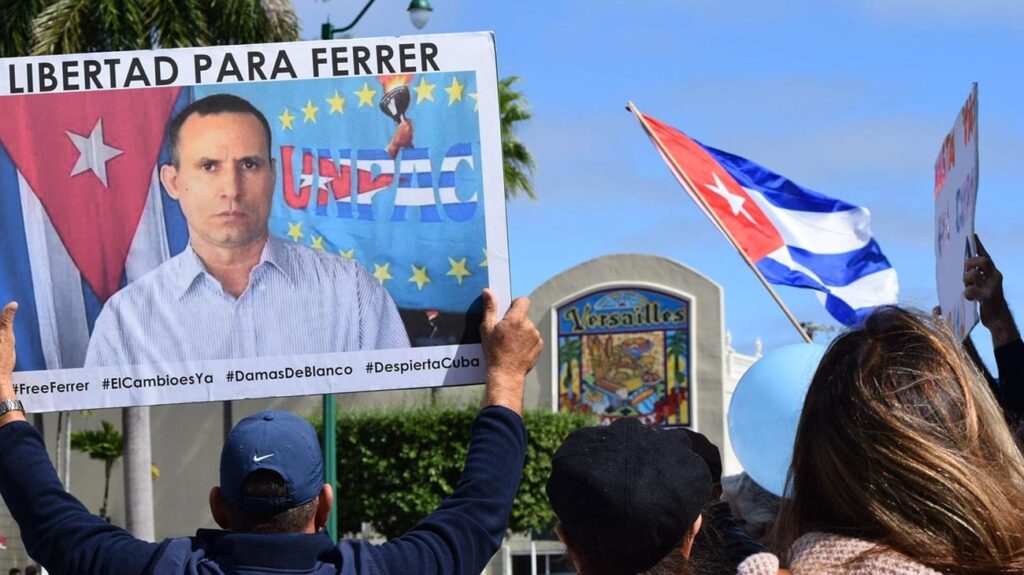José Daniel Ferrer, one of Cuba’s most well-known political dissidents, has gone into exile in the United States after enduring years of imprisonment, torture, and harassment under the island’s communist regime.
His departure was confirmed Monday by both Cuban and U.S. authorities. According to Cuban Foreign Ministry official Alejandro García, Ferrer left his hometown of Santiago de Cuba earlier in the day and traveled to Florida with several family members.
“This was a request made by the U.S. government to the Cuban government, and Ferrer agreed,” García told the Associated Press.
U.S. Secretary of State Marco Rubio also confirmed Ferrer’s arrival, stating that the activist had suffered “years of abuse, torture, and threats to his life in Cuba.”
A Long History of Resistance
Ferrer gained international attention in 2003 as one of 75 activists arrested during Cuba’s “Black Spring” crackdown on dissent. While most of the detainees were later released under the condition they leave the country, Ferrer refused exile and remained in Cuba, where he went on to found the Patriotic Union of Cuba (UNPACU)—one of the largest opposition groups on the island, though not officially recognized by the government.
His defiance made him a continued target of Cuban authorities. During the widespread anti-government protests of July 2021, Ferrer was arrested again despite already being under house arrest at the time.
International Pressure and Release
Ferrer’s name has long appeared on lists of prisoners of conscience compiled by organizations like Amnesty International. The U.S. government has repeatedly called for his release.
In January 2025, Ferrer was freed as part of a broader negotiation between the Cuban government and the Catholic Church that secured the release of over 500 political prisoners. However, Cuban authorities re-arrested him in April, claiming he had violated the terms of his release.
In early October, Ferrer’s family released a letter in which he accepted exile. While the full details of the agreement remain undisclosed, Cuba’s foreign ministry confirmed Monday that Ferrer left the country accompanied by relatives.
Ongoing Repression and U.S.-Cuba Tensions
The Council for Democratic Transition in Cuba, an opposition group Ferrer belongs to, described his departure as a “deeply human relief” after continued state harassment targeting both him and his family.
The Cuban regime has repeatedly accused Ferrer and other dissidents of receiving financial and logistical support from the U.S., framing opposition movements as part of a foreign effort to undermine its leadership amid ongoing U.S. sanctions.
Ana Hernández, a spokesperson for Cuba’s Attorney General’s Office, stated that Ferrer’s legal status was modified to make his departure compatible with Cuban law, though no further details were provided.
Final Thoughts
José Daniel Ferrer‘s arrival in the United States marks the end of one chapter in his long fight for democracy in Cuba—but also the beginning of a new one from abroad. His story remains a powerful reminder of the ongoing struggle for human rights on the island and the high personal cost many dissidents continue to pay.

